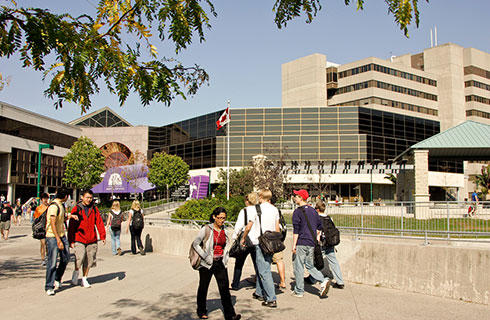国际学生入学条件
Minimum requirements for admission to graduate study:
A bachelor’s degree or recognized equivalent from an accredited institution.
Minimum GPA of 3.0.
Sufficient undergraduate training to undertake graduate work in the chosen field. This includes such undergraduate majors as: biological sciences, structural biology, physics, math, and chemistry. Laboratory experience is highly recommended.
GRE scores. We do not have set requirements for GRE scores. Outstanding GRE scores alone do not guarantee admission, nor do low scores disqualify an applicant. Three letters of recommendation, minimum (up to five are accepted): Letters of recommendation must be submitted online as part of the Graduate Division’s application process. Letters are also due Nov 30, so please inform your recommenders of this deadline and give them sufficient advance notice. It is your responsibility to monitor the status of your letters of recommendation (sending prompts, as necessary) in the online system. Unofficial copies of all relevant transcripts, uploaded as part of the online application, Applicants are required to take the Graduate Record Examination and have their exam scores reported to the University. Top applicants who are being considered for admission will be invited to visit campus for interviews with faculty. If the applicant comes from a country or political entity (e.g., Quebec) where English is not the official language, adequate proficiency in English to do graduate work, as evidenced by a TOEFL score of at least 90 on the iBT test, 570 on the paper-and-pencil test, or an IELTS Band score of at least 7 on a 9-point scale (note that individual programs may set higher levels for any of these)
展开
IDP—雅思考试联合主办方

雅思考试总分
7.0
- 雅思总分:7
- 托福网考总分:90
- 托福笔试总分:570
- 其他语言考试:NA
CRICOS代码:
申请截止日期: 请与IDP联系 以获取详细信息。
课程简介
Cell signaling and cell physiology are areas of research that are gaining prominence due to rapid advances in biophysical methods and the integration of these methods with molecular biology, biochemistry and genetics. These advances have allowed studies of molecular processes in the context of the integrated behavior of cells and their organelles, and of tissues and organs, and whole organisms. In addition, the application of theoretical mathematical models to this research is providing unique insights into how the ensemble behaviors of ion channels, pumps and cellular signaling systems determine cell behavior, and how groups of cells cooperatively determine the behavior of complex tissues such as the brain.<br><br>Current research in biophysics at Berkeley includes the study of the function and regulation of ion channels and transporters, the protein signaling pathways that regulate cell division and growth, the mechanisms of muscle contraction, nerve secretion, and synaptic plasticity, and the membrane dynamics and trafficking that underlies secretion, membrane wound healing, and signaling by organelles. A strength of the Biophysics Group is in the development and application of novel optical and chemical methods for making real-time high spatial resolution measurements of protein activity and second messenger levels in specific subcellular compartments of cells in intact tissue. Research is focused on both the elucidation of biological mechanisms and the development of genetic therapies for human diseases such as cystic fibrosis, muscular dystrophy, retinitis pigmentosa and macular degeneration in the retina. Promising advances in synthetic biology are also being made here at Berkeley as knowledge of cell signaling and physiology grows.
展开







 预科
预科 奖学金
奖学金 实习机会
实习机会 在校学习
在校学习 跨境学习
跨境学习 校园授课-线上开始
校园授课-线上开始 在线/远程学习
在线/远程学习














 伊利诺伊大学芝加哥分校
伊利诺伊大学芝加哥分校

 马凯特大学
马凯特大学

 肯特州立大学
肯特州立大学

 卡尔加里大学
卡尔加里大学

 康涅狄格大学
康涅狄格大学

 弗吉尼亚理工大学
弗吉尼亚理工大学









